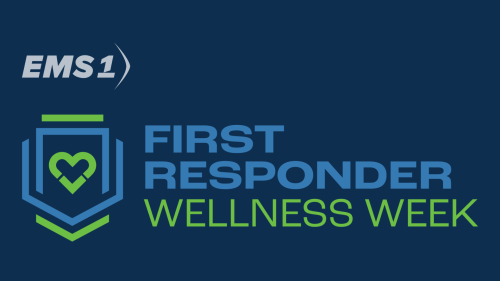The families of first responders play a crucial, yet often under-recognized role in the support system of EMTs, paramedics, firefighters, police officers and corrections officers. These families face unique challenges stemming from the demanding nature of first responder roles – from erratic schedules, to missed family events, safety concerns and the emotional aftermath of challenging shifts.
As one respondent to the stated, “I’m away from my family for at least 24 hours at a time. With the staffing issues, it gets increased to 48, 72 hours. I’ve missed way too many family events for the amount I make. The whole ‘honor and sacrifice’ thing goes out the window when you miss your kid’s 10th game of the season.”
Lexipol Media Group’s comprehensive state-of-the-industry surveys reveal just 32% of medics and 35% of firefighters reported their department offers stress and behavioral health support to their family, despite 42% of medics and 47% of firefighters noting stress from the job is negatively impacting their relationships with family.
Learn more
In a recent Lexipol webinar, a panel of public safety experts examined the themes emerging from those state-of-the industry surveys, including results from more than 4,100 law enforcement officers, 3,100 paramedics and 2,100 firefighters.
The panel included:
- Dr. Maria Beermann-Foat, PhD, MBA, NRP; EMS training coordinator, Eugene-Springfield Fire Department; and director at-large, NAEMT
- Chief Brian Fennessy, Orange County (CA) Fire Authority
- Greg Friese, MS, NRP, editorial director, Lexipol Media Group
- Mandy Nice, NSCA TSAC-F*D, NSCA CPT*D, strategic wellness director, Lexipol
- Chief Roger Schei, Pocatello (ID) Police Department
Watch now
Watch the full discussion:
Memorable quotes from the webinar
- “I’ve had contact with a few departments where family is present on the day the officer gets their badge and then the department doesn’t see the family again until the retirement party, and that feels really tragic to me.” — Greg Friese, MS, NRP
- “We hear a lot about in fire service, like you want to have clean gear and you don’t want to take stuff back to the station or back to your family, but bringing stress home might be like the worst thing you could bring home.” — Greg Friese, MS, NRP
- “We’ve impressed upon our recruits, now our firefighters, that they need to be talking with their spouses, their loved ones, or their whomever, that bottling it all up is not a healthy thing to do. At the same time, we’ve had several family days where we’re coaching up and we’re preparing the families for what their loved one is about to enter into.” — Chief Brian Fennessy
7 ways to support first responder families
First responder families face unique challenges that require targeted support strategies. Following are the panel’s top takeaways and tips for improving family support in public safety.
- Communication. Open and honest communication within families is essential. Encouraging dialogue about feelings and experiences can foster understanding and emotional connection.
- Community involvement. Engaging in community activities can provide a sense of belonging and support. Provide opportunities for responder families to participate in family days, community events and support groups.
- Family counseling. Access to professional counseling services, specifically those familiar with first responder challenges, can be invaluable. As Dr. Maria Beermann-Foat emphasized, “Professional guidance can be a beacon of light for families navigating through these unique challenges.”
- Peer support groups. Formalized peer support should not be just for personnel. Families can benefit from peer support groups where they share experiences and coping strategies with others in similar situations.
- Wellness programs. Many departments now extend wellness programs to include families, offering resources like stress management workshops and family fitness programs.
- Educational workshops. Workshops on topics like resilience training, stress management and understanding first responder work culture can empower families with knowledge and coping skills.
- Spousal debriefs. Chief Schei shared that after an officer involved shooting, the Pocatello PD started holding spousal debriefs after every critical incident, preparing the spouses for what their officer may be experiencing at home.
Supporting first responder families is a vital aspect of ensuring the wellbeing of our first responders. By understanding their unique challenges and providing targeted support and resources, we can help foster resilience and stability. As we continue to support our first responders, let us not forget the silent strength behind them – their families.
Watch: ‘Just listen’
SA���ʴ�ý is using generative AI to create some content that is edited and fact-checked by our editors.
















